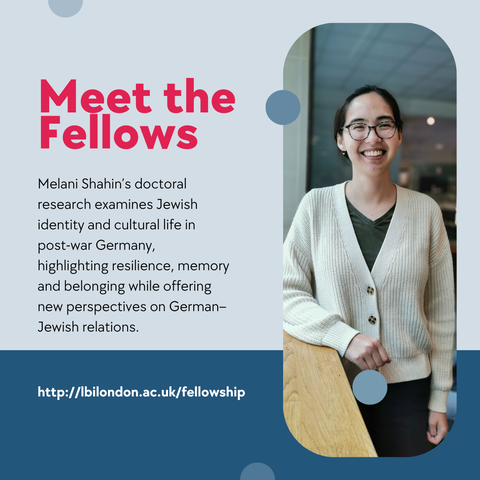
About Your Research
Could you briefly describe your doctoral research project for those outside your field? What inspired you to pursue this topic?
I study how nineteenth-century German-Jewish cantors and music scholars critically interpreted and incorporated the scholarship of early modern Christian authors into their histories of Jewish music. While early modern Christian discourse on “Jewish music” usually focused on ancient Hebrew music and often displayed bias toward the subject, nineteenth-century cantors nevertheless engaged with this material in their histories and archives. My research attempts to chart how both Jewish and Christian intellectual streams influenced the emergence of Jewish music studies as a field of research. I have always been interested in the intellectual history of music, historiographical questions, and German-Jewish history. My undergraduate research was focused on eighteenth-century Protestant German music history and theory treatises, so my dissertation has been an opportunity to blend those interests and my undergraduate research into a completely new project.
Academic Journey
Can you share a memorable moment from your academic life, such as a breakthrough or inspiring discovery?
Working in the archives always gives me a thrill since I love to actually see the manuscripts of the scholars I study! There is something so fascinating and engaging about being able to read their handwriting and handle books and other materials with which they worked. It helps the history come to life for me. I remember finding a particular manuscript in the nineteenth-century cantor Eduard Birnbaum’s archive, which was an annotated bibliography of Jewish and Christian writers who had written about synagogue and Hebrew music. It was exactly the kind of source I was looking for, so it felt satisfying to find it after several days of combing through a huge amount of material.
Fellowship Experience and Research Development
How have the fellowship’s workshops and international community influenced your research and academic progress?
The fellowship has really encouraged me to find ways to connect my research to the broader interests of researchers and readers interested in German-Jewish studies. Through conversations with my colleagues this year, I have felt more empowered to read more broadly in the field of Jewish studies, which has been extremely helpful as I’ve been working through my ideas and writing.
Future Aspirations
What are your goals after completing your doctorate, and how do you envision your research impacting your future career or the field?
I hope to continue my research and eventually become a professor. I am excited to continue studying the relationship between Jewish and Christian scholars of music, and I would like to explore how these relationships evolved in the twentieth century. I would also like to study histories of Jewish music written by women in the early twentieth century, such as A. Irma Cohon. I think it would be interesting to analyze how women contributed to the intellectual foundations of Jewish music studies, especially since most of the authors I discuss in my dissertation are male.
Personal Interests
Outside of your academic work, what are your interests or hobbies, and how do they help balance your scholarly life?
In my free time, I enjoy reading—particularly non-fiction books about science or periods of history completely unrelated to my research. I also enjoy walking, hiking, yoga, and of course, playing the double bass. It is important to me to have hobbies that help me take a step back from my research since I find myself more refreshed and creative when I return to my work after regular breaks.



